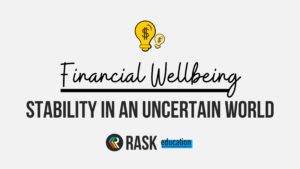Define: What is a smart beta or rules-based ETF and how are smart beta ETFs different to Index Fund ETFs?
The video below answers some in-depth questions. If you’re new, navigate to our courses page and take our free course on ETFs.
What is a Smart Beta / Rules-Based / Factor ETF?
Smart beta ETFs are the same thing as a ‘Rules-Based’ and ‘Factor’ ETFs.
Smart beta ETFs try to change the risk and return of a normal market index (like the ASX 200 or Dow Jones).
How do they change the return and risk profile?
They do it by creating ‘rules’ for which investments are made by the ETF.
Here are some common factor / rules-based / ‘smart beta’ ETF strategies:
- Minimum volatility – there are a few ways these ETFs try to minimise volatility (the academic’s version of investing ‘risk’). They might do this by using complex ‘derivative’ strategies (similar to managed risk hedge funds) or by simply buying shares with low ‘beta’ ratios. Remember, volatility is a type of ‘risk’ created by academics, TV broadcasters and our impulsive monkey brains. Long-term investors who know what they are doing shouldn’t be fooled by volatility!
- Income-focused – these ETFs focus on dividend income from shares or other assets. Sometimes, the income comes at the expense of growth!
- Momentum ETFs – these types of ‘Smart’ ETFs simply buy shares that have gone up in price and sell those that have gone down, usually in the past quarter (three months) or 12 months.
- Value ETFs – these ETFs might buy shares with a low price-earnings ratio (P/E) or price-to-book P/B ratio.
- Multifactor ETFs – these ETFs use a combination of strategies.
Bottom line: many of the ‘Smart’ ETF strategies will work in different markets and under different conditions.. but there are no guarantees any of them will work over the long run.
Many Australian or ASX ETF researchers have suggested most smart beta ETFs are just a waste of time and money. Others call them ‘dumb’ beta!
Why are they called Smart ‘Beta’ ETFs?
If you have taken a finance course you will remember this thing called ‘beta‘ and that the entire sharemarket for each country has a beta of 1.0.
You might also remember that:
- A beta of more than 1.0 means more risk
- A beta of less than 1.0 means less risk
Since most index funds track the ‘entire market’ so their portfolios have a beta of 1.0.
And since the ‘smart’ beta ETFs change the risk and return of an investment portfolio (compared to Index funds or ‘the market’) they have a different Beta.
Marketing departments did the rest!
Are smart beta ETFs better than normal ETFs?
No, not necessarily.
The effectiveness of smart beta ETFs are, for the most part, untested over multiple market cycles.
While some ETF providers will offer you ‘backtests’ or ‘hypothetical returns’ for their strategy over many years, most of them haven’t been tested in real life.
We think you should be VERY CAREFUL about relying on backtests and past performance provided by the ETF issuer or provider.
What’s more, many smart beta ETFs may not provide the ‘exposure’ they claim to provide. Remember, no-one can predict the future!
Speak to a financial adviser if you’re confused about which ETF is right for you.
[ls_content_block id=”27643″ para=”paragraphs”]



